|
Last week I wrote about how I started my journey of "professional" writing. If you missed the first one, just scroll down to last week's blog to catch up. The middle When I ended last week, I told you I had a scheduled blue pencil session and a pitch session. Common sense helped me pick who I wanted to sit down with: I looked through the lists of authors and agents and chose people that worked with or represented what I'd brought with me to the conference. Sometimes, as I did with Tanya and Carly, you take what you read about them and then just go with your gut. Before I tell you how my sessions went, I'll point out what I should have done to be more prepared. When I think about what I didn't know when I attended, I realize how lucky I am to have been successful. What I should have known before I went:
So, what was it like?
What came next? The biggest part of this whole process: the waiting. There is a lot of waiting in this industry. So I tried, unsuccessfully, to pretend that it didn't matter if Carly emailed. I was surprised by how much being surrounded by writers and books inspired me to write. Since I came home from the conference, I have not stopped doing three things: writing, reading, and waiting. So how did it end? Not that the journey is over but what was the result of going and putting my writing out there for others to read? While you may think you know what I will write in next week's third and final blog in this series, I can promise you, you do not. Even I did not know how this particular journey would end until this week. Where am now in my journey? What's it like to get the phone call from an agent who wants to represent your work? How can you prepare for that phone call? You'll have to come back next week and read the third in this three part series to find out! What stage of your writing journey are you at? What do you find most difficult?
I suffer from a condition called 'impatience'. It's characterized by an intense need for things to happen NOW. Symptoms can include, but are not limited to: toe tapping, finger drumming, writing in mass quantities, checking social media and email obsessively, and reaching out to other writers to see if they are suffering from a similar fate. I'm told it's not fatal and the only cure is... waiting patiently. To take my mind off of my symptoms, I've decided to do a 'series' of blog posts sharing my journey. This will accomplish a number of things: it will keep me busy, it will let other writers know how I came to this stage in my journey, it will assure you that you're not alone, and it will help me prepare for a workshop I'm giving next month about writing picture books. The workshop is in three weeks at a local Children's Festival so I will do this blog series in three parts. The beginning, the middle, and the end. In the beginning... I, like most writers, have been writing as long as I can remember. It's always been an outlet and a way of expressing things I could not verbally. Of course, writing in a journal or notebook is far different from writing professionally. I never intended to write professionally but I never intended not to either.
About three years ago, when my oldest daughter was almost eight, I began writing a story about a girl that was almost eight. I wrote the story and shared it with my family. It was cute and I had the idea that maybe I could get a local artist, Stephan Baker, that I work with through my school (I am an elementary school teacher) to draw some pictures to go with it. In my mind, I was thinking that maybe it would make a nice gift for my daughter: fun story that mommy wrote. I was very nervous about sharing the story with someone outside my family. I framed it as, "I wrote this story and wondered, and you can say no, if you would maybe, and you don't have to, draw some pictures to go with it." He read the story and said that he liked it and would really like to do some pictures for it. So we began sharing ideas while he did some sketches that suited the story perfectly. In the midst of the sharing, he told me about an idea he'd had but, being an artist, not a writer, he thought of the story in pictures. So I set to work on this story. About a year later (we worked in bits and pieces at a time) Stephan had multiple pages of illustrations to go with a story I'd titled Jessica Bean. It was wonderful to see this story I had written come to life through his illustrations. We had talked more about just putting the story 'out there'. We'd written it anyway, so it might be worth the time to see what others thought of it. I let my librarian read it as well as a few of the classes at school. Likewise, he took the story to some of the schools where he taught art. It was well received. A friend that I work with suggested that I attend the Surrey Writers Conference with her as that could be a chance to share our work. At this point, we had an illustrated version of Jessica Bean and I had written a story based on Stephan's idea that he'd shared with me. The story is about a Princess. He hadn't worked on many illustrations for this one, as we'd focused on Jessica. On my own, I had written a story about a little boy who doesn't see the world the same way his classmates do because he sees through autistic eyes. It placed in the second round of entries in a contest for the Writer's Union of Canada, as did Jessica. Making it that far granted me the luxury of getting some professional feedback. On October 17th, 2012, I drove into Surrey with my friend. I had to miss We Day Vancouver to get to the evening festivities for the conference. I remember thinking, I hope it is worth missing Craig and Mark Kielburger for this conference. That night, I had dinner with my friend followed by an unbelievably inspiring and enchanting evening with a group of well known writers. Honestly, I felt like a kid who finally gets to sit in the staff room with their favourite teachers. I sat and listened (because I was too shy and nervous to speak) to Diana Gabaldon, Jack Whyte, Sam Sykes, CC Humphreys, and Michael Slade laugh and joke. These admirable and talented writers were REAL people! It was an honor to sit and just observe. They were all very lovely and funny and it will remain one of my favourite memories though I do wish now that I had overcome my nerves and engaged in conversation with any one of them. The next morning, I was due to have a blue pencil session with Tanya Lloyd Kyi. I had read her bio and chosen her because she wrote for children, was local, and, honestly, she looked nice in her picture. Her picture was not lying, by the way. She was lovely. A blue pencil session is when you get the chance to have a professional look over your work and provide you some feedback. I am grateful that I had my blue pencil session before my pitch session with Carly Watters, though at the time, I didn't know it would make a difference. When you pay for the conferences, you can book a ten minute blue pencil session and a ten minute pitch session. Not being a professional writer, I had no idea how important both of these sessions could and would be. Not knowing, I was extremely lucky that both of my sessions (which I will talk about in detail in my next post) went so well. I had with me: both the stories that had earned some notice in the Writer's Union contest, one of which I had fully illustrated, a story I was just starting, and the story about a Princess that was not illustrated. I'm not good at living with suspense, so I'll tell you a few things before I end: 1. In hindsight, I was not well prepared to pitch and I'll explain why and give you helpful advice in next week's blog. 2. I'm now an agented writer on submission so it went well despite not being as prepared as I now wish I had been. 3. Attending the conference was WELL WORTH missing Craig and Mark Kielburger. Tune in next week where I'll talk about meeting the lovely Tanya Lloyd Kyi and Carly Watters, how getting professional feedback and attending the conference made me look at what I wanted to do with my writing, how submitting requested work to an agent opened my eyes to the writing world, and how I've become a better writer since realizing that I want to be a writer. Have you attended or thought of attending a writers conference? The Surrey International Writers Conference will be happening again this year from October 25th-27th. You should go. When I was little I would get out some paper and a pen or pencil and call myself a writer. What more could anyone need if they wanted to write stories? When my daughters want to write, they ask if I can get off the laptop, if they can use the iPad, or go onto the desk top computer. Lots of times, I tell them that they have to use the old fashion method of paper and ink. I think there's power in this for them. As a writer, there is still something that moves me about writing the words that fumble around in my brain down on a piece of paper and reading over it, realizing that it's become something more than jumbled words. We can backspace and delete on our laptops but I believe pen to paper will always have value. That can be another post.
When I was in high school I got a very nice Smith Corona typewriter. When something really mattered, I'd type up a final draft on that. In University, I purchased my own computer and parted ways with my pen and paper unless necessary. As I've waded into the waters of "professional" writing (sharing with an agent, getting an agent, being on submission), I've come to realize that there are many more tools necessary for today's aspiring authors. It's more than just the medium we use to get our words down; much more. In teaching (I teach elementary), we need to be very aware of (and hopefully utilizing) 'best practices'. This means that we are up to date on current research and information on how to facilitate student success. It is very similar in writing. It is not just paper, pen, a list of agencies to query, and some stamps anymore. What does today's writer need in their toolkit?
What else? What's important in your writing toolkit? What makes you stronger or more confident as a writer? As writers, we must be readers. In honor of Mother's Day and the fact that I have a picture book on submission, I wanted to share my top ten favourite cuddle-up-with-mom-and-read picture books. We are inspired by everything around us and what we read helps shape what we write. So if you write picture books, or just want a great read with your little one,
here are some great ones. Some thoughts on where to turn when you need answers about your writing journey. When I'm reading articles and blogs on writing, I'm often reminded of something my mom suggested when I had my oldest daughter. She told me to choose someone I admire and respect to look to for advice. If I had someone I could turn to, then I could tune out all of the unwanted advice and suggestions that inevitably come to new parents. Ten years and a second daughter later, I realize that this advice applies to writing as well. As a new writer, it is easy to be inundated with tips, advice, and suggestions. There are thousands of websites, blogs, newsletters, and articles about succeeding in writing. It takes a long time to sift through the advice and suggestions. It takes patience to decide what routes are right for you and your manuscript. It's difficult to trust in your own judgement when others seem to know so much. To navigate successfully through waters you've never swam in before is a challenge that most new authors don't anticipate. I didn't. It amazed me how much information is available. I feel lucky to have had an 'edge' so to speak. Having been lucky enough to be signed by an agent, I began to follow people on Twitter that she followed. By doing so, I found a variety of websites, blogs, agents, and authors that share insightful and valuable information. I don't have to wade through all of it, wondering which one has the best or most useful advice. Regardless of where you are in your writing journey, I thought it might be useful to share some of my favourite 'industry' sites. These are websites that I turn to time and again for valuable information, writing tips, industry knowledge, and an overall good and candid read. Just like with parenting advice, you can't listen to everyone. You have to choose a trusted advisor (or a few) and rely on yourself. You have to know what you're comfortable with, what you want for yourself and your manuscript, and push yourself toward advice-givers that are in sync with these things. For me, the following websites answer the questions that randomly pop up but they also make me think about things I wouldn't have otherwise. The combination of trusting sound advice and trusting myself has, hopefully, made me a better writer. My favourite sites http://carlywatters.com
This is the site of my agent. Her blog was named one 101 best websites for writers. She gives honest, straightforward information that is both realistic and encouraging. http://rachellegardner.com I love reading posts by Rachelle. Her blogs always answer questions to things that I have been thinking about. Insightful, funny, and helpful. I cannot believe how vast and supportive the writing community on Twitter is. Watch who people you trust are following, take a look at the suggestions Twitter makes for 'other people similar to this'. I have been lucky enough to have fun, meaningful, and helpful communications with writers all around the world that, without Twitter, I would not be connected to. It is amazing to feel connected to others on a similar journey. http://writersdigest.com Whether you're looking for webinars, courses, writing opportunities, or industry information, you will find it at Writer's Digest. I love reading the information on this website. It answers questions that new writers really have without being vague. http://www.dahliaadler.com Dahlia is a writer, like us, who is honest and genuine on her website. It's easy to navigate and the 'Daily Dahlia' is broken down into excellent categories, such as tips for agented authors and tips for unagented authors. Her writing is funny and real. I've read, time and again, that writing is a solitary journey. What is always stressed however, and turns out to be quite true, is that we are not alone. Reach out, find others who can and will support each stage of your writing journey. Connecting with other writers, agents, editors, and people in the publishing industry is an invaluable way to realize that everyone starts somewhere. There is something very powerful about connecting with people that share your passion, who 'get' what you do or want to do. If nothing else, connecting with others can show you that, regardless of the stage you're at in your writing, others have come before you and made their way through. Do you have a list of 'go-to' websites that provide awesome information? |
Archives
May 2021
Categories
All
|


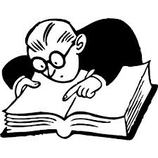
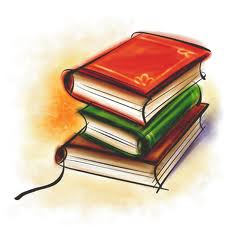
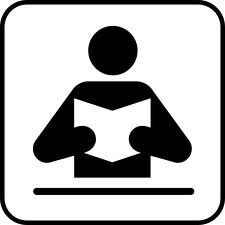
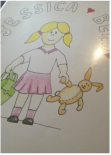
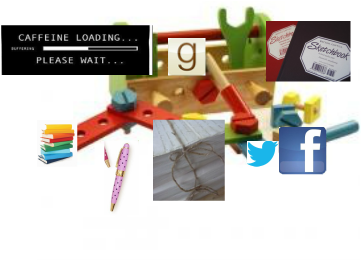
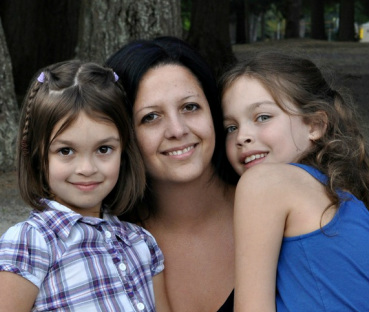
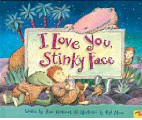
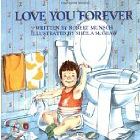
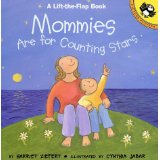
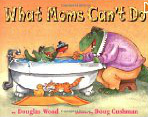
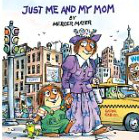
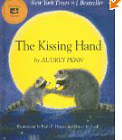
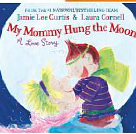
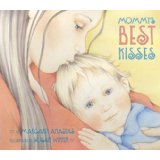
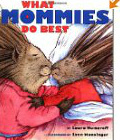
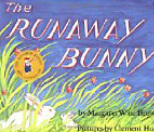

 RSS Feed
RSS Feed
